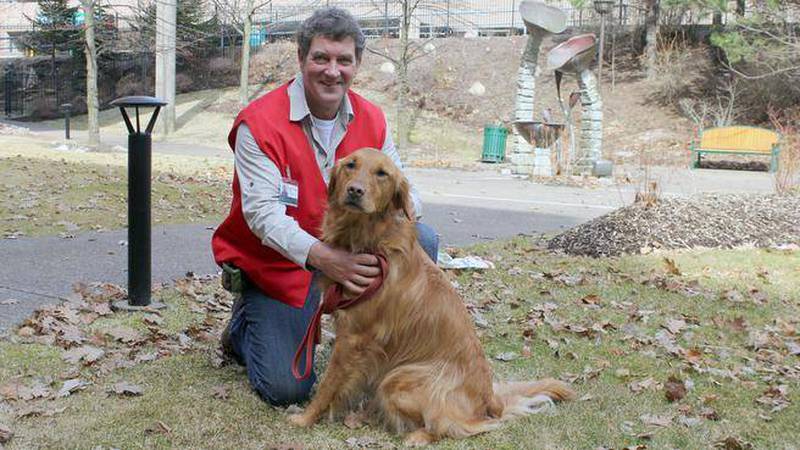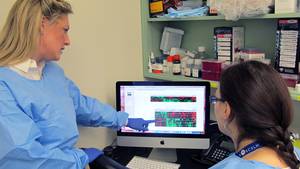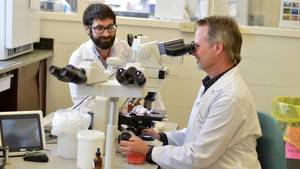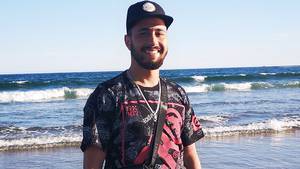Every Tuesday Levi waits anxiously in the porch, ready to go and volunteer his services to the residents of the QEII's Camp Hill Veterans Memorial Building. He’ll sit with the veterans, listen to them and even let them run their hands through his hair — all in a day’s work for a volunteer at the QEII.
Levi is a spunky three-year-old dog and a graduate of the St. John Ambulance Therapy Dog course. He’s been happily volunteering his unique services for the past year.
“He loves people. He’s one of those dogs that just enjoy people,” says Richard Codner, Levi’s owner and fellow volunteer.
Levi’s temperament makes him perfect for helping out in the Veterans Memorial Building.
“He’s not the calmest dog, but he doesn’t jump,” he says.
Richard wasn’t sure at first if Levi had what it took to be a therapy dog, as he’s young and excitable.
“When we got into the program I said to my wife that there was no chance, he’s just too excited. But he had the traits they were looking for and, given time, he’d settle down.”
Levi is still as excited as ever, but knows how to temper his excitement when he visits with the veterans.
Everyone is different and Levi knows this. Veterans all approach therapy dogs differently, so Levi has to adapt to them, from room to room and person to person.
Therapy dogs have been part of the Veterans Memorial for many years says Kathy Ward, recreation therapist at the QEII.
“You need a dog that loves to be around people and is sociable and confident — not a dog that’s nervous.”
The benefits of the program go well beyond simple activity, particularly for individuals suffering from different stages of dementia or those with social anxieties.
“People who are shy or nervous around other people may respond more postively to animals” says Kathy. “They make the environment feel more home-like and safe.”
Kathy says that therapy dogs can have a positive impact on pain and anxiety too.
It’s also a very tactile experience for people. Levi for instance has a red St. John Ambulance vest but does not wear it because many Veterans enjoy running their hands through his fur.
She also notes that for sufferers of advanced dementia, speech does not come easy and dogs can help with that.
The dogs can act as a bridge between the patients and the human volunteers.
“I don’t think all Veterans where we visit really know me, but when you mention Levi they want to see him,” says Richard.
“I think people see other people one way and they see dogs another way… You go in and you can see them light up. There’s no doubt about it.”
Richard sees Levi as kind of an icebreaker who can come in and brighten up someone’s day.
“I don’t want to be too forceful just in case, but sometimes I just say we’ll stay for a few minutes but by the time we leave I’m glad we did go in because they had a smile on their face and enjoyed the visit.”
“When Levi and I go for walks in the community, we mention to other dog owners about the therapy dog program. After seeing how happy a visit from Levi can make one person, we want to get more people interested in the program,” says Richard.
Volunteer Services coordinates the Therapy Dog volunteer program and all dogs must have successfully completed training through St. John Ambulance or Therapeutic Paws of Canada. To find out more about volunteering at Capital Health, please visit www.cdha.nshealth.ca/giving-volunteering.








